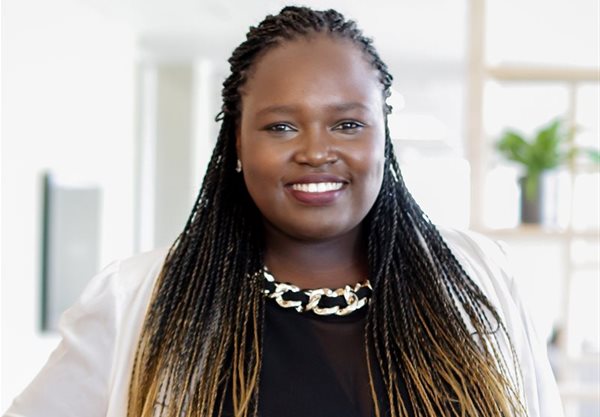The topic of gender equality in the workplace is not new. All too often, headlines today call out yet another woman who has spoken out against the injustices she has experienced because of her gender. If anything, this proves that today, gender inequality is still very much alive and well in the workplace.

Cassie Jaganyi, senior communications leader for sub-Sahara Africa at Procter & Gamble
We see these inequalities show up in other areas – the gender pay gap, cases of sexual harassment and issues with the lack of women represented at senior management levels, to name a few.
Despite these challenges, I believe that as women, we have taken a crucial step forward in the fight for gender equality. Today, women are significantly more vocal than we have been in the recent past, boldly, and unashamedly sharing our stories of discrimination. Be it in a public social media post that goes viral or even just amongst our immediate colleagues, women are speaking up more and calling out the injustices of gender inequality and rightfully demanding reform.
What we are seeing is the power of solidarity coming to life – the bravery of one individual gives the next the courage to also speak out. As seen by the #MeToo movement, the power of hearing a story of discrimination that sounds like your own and having your feelings validated is hugely empowering and should not be underestimated. Ultimately, when the narrative becomes this strong, this powerful and this continuous, the powers that be have no choice but to listen.
Corporate South Africa has responded to this narrative with declarations of their commitment to gender equality and their desire to do right by their female employees and consumers. However, fundamental change to the corporate landscape remains a key opportunity area. I believe that there are a few things corporates could do better.
Catherine Estrampes 3 Aug 2021 Actions speak louder than words – and training is simply not enough
The advent of the gender equality conversation in a corporate space has seen the introduction of a number trainings on discrimination, biases, and the inclusion of men in the conversation. While these are great kick-starters, they mean nothing if there is no real change. Corporates need to hold themselves and their employees accountable to turn their training into tangible action.
Be intentional about equal representation in leadership
Many a study has shown that diversity in leadership is a key business driver of innovation and is crucial to the success of any organisation. Corporates need to be more intentional about equal representation at all levels of management. This will take a deliberate effort to put together guided and specific succession plans that account for the benefit of diversity at a management level.
This process should include identifying top female talent as early as possible with the intent of grooming them for leadership positions. Without intentionality, we won’t see change in this area.
Don’t be afraid of open dialogue – even if you hear something you don’t like
It is easy for an organisation to find itself in a situation where employees are afraid to speak up or share their opinions. A great tool to get a sense of the issue’s facing your organisation is to engage in open dialogue sessions where employees can share freely without fear of retaliation.
These sessions will require a willingness to listen and an intent to act. They ensure that you are clear on the issues pertinent to your organisation and give you a direct starting point to put the right action plans in place.
Being conscious of the female consumer just makes good business sense
Research has found that in South Africa, over 60% of women have the buying power in their household. Therefore, being conscious of what is important to female consumers should be a key business strategy. The watch-out here is to be genuine in your approach. A brand that advertises advocacy for gender equality but belongs to an organisation that has internal issues will feel false to consumers and will ultimately be felt in the bottom line.
The reality is, we still have some ways to go on our journey to a fully equal society. There is a lot of work to be done by individuals and corporates alike but there is also a lot to be celebrated. I remain hopeful that we are on the right track and that future generations will celebrate our efforts.



















































